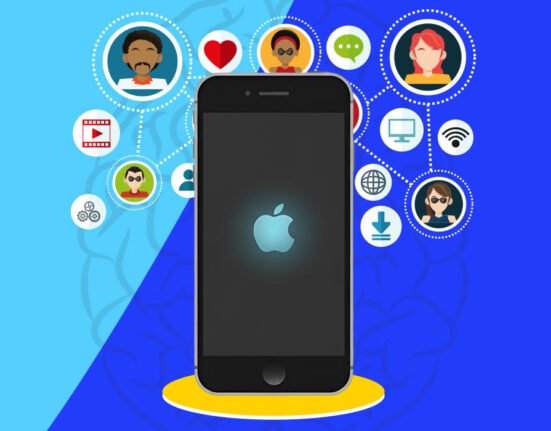In today’s stressful world, it is common for people to be so busy with work, studies, home and other duties that they forget to take care of themselves. Being faced with financial hassles, high demands at school, and excess tasks makes it hard for many students to maintain proper sleep, healthy meals and exercise (Branson, 2023; Covarrubias et al., 2024).
People in these conditions often do not pay enough attention to their health, which ultimately affects their overall well-being. Even as mental health is understood more, the number of people dealing with anxiety, tiredness and burnout keeps increasing. Handling stress becomes challenging for many since constant strain often takes away their ability to solve problems. Basic techniques, such as relaxing during breaks, reflecting on your thoughts, and getting enough rest, can bring about a better quality of life.
Misconceptions of Self-Care
Misinterpreting self-care is very common. Some individuals think self-care means an expensive salon day or taking trips. This problem is greatly influenced by social media, which promotes the stigma around mental health and self-care (Paruszkiewicz-Philson et al., 2025).
However, self-care is far simpler than that. Self-care, as its name suggests, is anything one does to help their physical, emotional and general health. It’s not required to spend a lot on products and have lots of free time. Many believe self-care means having a perfect routine that we must stick to every single day, but this just makes it feel like another responsibility. In reality, self-care is straightforward and flexible, and with consistent efforts and allowing mistakes, even slight changes can boost mental health greatly.
Simple Self-Care That Can Increase Mental Health Well-Being
1. Quality Sleep
Sleep is something people usually neglect in their self-care routines. Not getting enough sleep can make a person irritable, more anxious and emotionally unstable. According to research done by Almarzouki et al. (2022), not getting proper sleep can increase the risk of anxiety and depressive symptoms in children and teenagers. The same study found a strong link between a lack of quality sleep and poor mental health in adolescents during both school and holidays. While some students received a high GPA despite poor sleep, in the long run, they usually experience weaker memory and cognitive functions.
Simple tips to improve sleep habits
- Have a consistent sleeping routine, even during weekends and holidays
- Try to get about 7- 8 hours of sleep each night
- Switch off your gadgets at least one hour prior to going to bed and spend the time reading, journaling or meditating.
2. Balanced diet and hydration
While there is a lot of evidence that a well-balanced diet is important for physical health, few studies consider its role in mental health. In a study by Roser Granero (2022), severe anxiety was linked to diets high in fat, carbohydrates and cholesterol. Improving eating habits doesn’t require cutting out all unhealthy food, but it involves prioritising meals with fruit, vegetables, pulses and meat. Besides good eating habits, hydration is also important in mental functioning. Being dehydrated leads to tiredness, a bad mood and unable to concentrate.
Tips to improve eating habits and hydration
- Consumption of food that is rich in antioxidants and anti-inflammatory properties, like vitamin A, C, polyphenol, and beta-carotene reduces anxiety and depressive symptoms. (Roser Granero, 2022)
- Make a meal plan that consists of vegetables and fruits
- Try to use healthier ways to cook, such as baking rather than frying your favourite foods.
- Keep a regular diet of healthy meals and don’t eat greasy foods
- Always have a water bottle in sight and use reminders on your phone or download hydration apps
- Reward healthy food choices with an increased break or even a small picnic.
3. Physical Activities
Being physically active has been shown to help decrease mild and moderate depressive symptoms and anxiety, increase self-esteem and control certain behaviours. It enhances one’s focus and confidence. (Taylor et al., 2025)
Tips for physical activity
- Regularly working out with cheat days
- Swimming, running and aerobic exercises
- If your interest doesn’t lie in exercising, then simply dancing is beneficial. Even walking or choosing the stairs instead of an elevator can bring big improvements to mental health
4. Journaling
A study by Smyth et al., (2018) found that journaling, especially the Positive Affect Journaling (PAJ), is a strong method for boosting emotional awareness and self-control. It has been found that regular journaling greatly reduces anxiety and enhances one’s mental strength. Journaling can also benefit people by promoting social integration. Maintaining a journal is a simple and inexpensive way to help emotional well-being.
Tips to start or maintain journaling:
- Schedule a time to write and practice the habit
- Write about thoughts, feelings, daily events and special occasions
- Focus on consistency rather than perfection
- Leave your journal in a spot easy to see, to remind you to write
5. Spending less time on electronic devices
Using social media and screens excessively can harm an individual’s mental state. It leads to more stress, less ability to concentrate and reduced attention span. Research has shown that reducing screen time can help with depressive symptoms and improve well-being. Digital detox gives people time off from mental strain and exhaustion, to take breaks and reset. (Ramadhan et al., 2024)
Tips for digital detox
- Set specific time limits for screen use and monitor the hours spent on social media
- Finding other creative outlets, like drawing, playing music, reading, dancing, making new dishes, etc
- Spending more time with family and friends
- Turn off notifications and uninstall apps that are distracting
6. Social Connections
Mental health improves with strong social connections. Spending time with family and friends promotes an optimistic mood and reduces feelings of loneliness and stress. According to Harandi et al., (2017), having reliable support networks is essential to prevent mental health issues and improve well-being.
Tips to strengthen social connections
- Spend a few hours a day on conversations with family and friends. Communicating in person is better than using an audio or video call
- Have meals and plan gatherings, and journeys with family
Psychologists Weigh In
Why is Self-Care important for Mental Wellness?
According to Counselling Psychologist Archana Nanduri, Self-care is more than just pampering yourself—it’s a conscious commitment to nurturing your mental and emotional well-being. As a counselling psychologist, I’ve seen how even small self-care practices can make a big difference in people’s lives.
In our fast-paced world, we often forget to pause and check in with ourselves. We’re so focused on meeting everyone else’s expectations, whether it’s at work, in family roles, or in social circles, that we lose sight of our own needs. But when we don’t slow down, stress can build up, leading to anxiety, burnout, and feeling constantly overwhelmed.
At its core, self-care is about honouring your needs and feelings. It doesn’t have to be elaborate or expensive. For some, it might be sitting quietly with a cup of chai, savoring a few deep breaths. For others, it might be taking a brisk evening walk, talking to a friend, or listening to music that soothes the soul. These small moments can bring so much calm and clarity, helping you stay grounded in the midst of life’s demands.
I often see my clients, especially women and teens, who feel guilty for taking time out for themselves. But self-care isn’t selfish—it’s an act of self-respect. When we care for our mental health, we become more patient, more compassionate, and better equipped to handle life’s ups and downs. I want to point out that self-care is about giving yourself permission to rest and breathe, to honour your feelings, and to listen to your body.
Ultimately, self-care is about being gentle with ourselves. It’s about creating little pockets of calm and joy in our busy lives, so we can show up as our best selves for those around us. By making self-care part of our daily rhythm, we’re not only caring for our minds but also nurturing healthier, happier families and communities.
Conclusion:
Self-care is putting your well-being first and stepping away from the constant pressure to compare yourself with others. It is vital for a healthy life. Self-care does not require major resolutions; even small activities, when overwhelmed, can ease stress. Mental health practitioners are now being taught to support others in learning self-care habits. It is no longer just a psychological concept but a major part of the healthcare system (Covarrubias et al., 2024).
FAQs
1. What are some easy ways to improve my mental health through self-care?
Incorporating simple self-care like prioritising sleep, exercise, eating healthy meals, spending time away from social media, connecting with loved ones, and trying creative activities can improve mental health.
2. How can I incorporate self-care into a busy schedule?
Incorporating small activities into daily life, for instance, sleeping earlier to get at least seven hours of sleep, taking walks instead of driving a short distance, and climbing stairs rather than using elevators, are all beneficial. Start small and then gradually develop each habit.
3. Why is self-care important for mental health?
Self-care helps reduce stress, anxiety, depressive symptoms, improve mood, increase self-confidence and overall well-being.
4. How can I identify my specific self-care needs?
Find out the reason for feeling stressed and unsatisfied, and pay attention to the signals your body and mind are giving you. Signs of fatigue may indicate work overload. Reflect on the small activities that make you feel calm and happy.
5. What if I’m struggling to maintain self-care habits?
It’s completely okay to make mistakes or take a break. Self-care should support your well-being, not feel like an additional burden. Try to stay consistent and focus on the small changes you’re making. If you still feel like you’re struggling, consider seeking advice from a mental health professional.
References +
- Almarzouki, A. F., Mandili, R. L., Joud Salloom, Kamal, L. K., Omimah Alharthi, Samah Alharthi, Nusaiba Khayyat, & Baglagel, A. M. (2022). The Impact of Sleep and Mental Health on Working Memory and Academic Performance: A Longitudinal Study. Brain Sciences, 12(11), 1525–1525. https://doi.org/10.3390/brainsci12111525
- Covarrubias, S., Molina, S., Javadi, E. K., & Lebares, C. C. (2024). Understanding the Importance of Self-Care and Mental Health. Success in Academic Surgery, 263– https://doi.org/10.1007/978-3-031-66011-5_25
- Harandi, T. F., Taghinasab, M. M., & Nayeri, T. D. (2017). The correlation of social support with mental health: A meta-analysis. Electronic Physician, 9(9), 5212–5222. https://doi.org/10.19082/5212
- Ramadhan, R. N., Rampengan, D. D., Yumnanisha, D. A., Setiono, S. BV., Tjandra, K. C., Ariyanto, M. V., Idrisov, B., & Empitu, M. (2024). Impacts of digital social media detox for mental health: A systematic review and meta-analysis. Narra J, 4(2), e786. https://doi.org/10.52225/narra.v4i2.786
- Roser Granero. (2022). Role of Nutrition and Diet on Healthy Mental State. Nutrients, 14(4), 750–750. https://doi.org/10.3390/nu14040750
- Smyth, J. M., Johnson, J. A., Auer, B. J., Lehman, E., Talamo, G., & Sciamanna, C. N. (2018). Online Positive Affect Journaling in the Improvement of Mental Distress and Well-Being in General Medical Patients With Elevated Anxiety Symptoms: A Preliminary Randomized Controlled Trial. JMIR Mental Health, 5(4), e11290– e11290. https://doi.org/10.2196/11290
- Taylor, C. B., Sallis, J. F., & Needle, R. (2025). The relation of physical activity and exercise to mental health. Public Health Reports, 100(2), 195.
https://pmc.ncbi.nlm.nih.gov/articles/PMC1424736/













Leave feedback about this